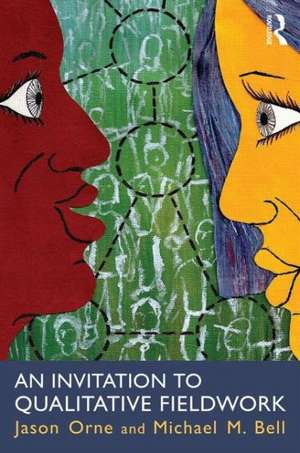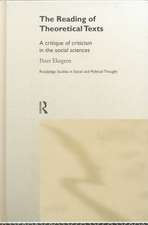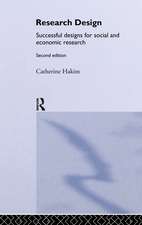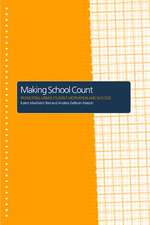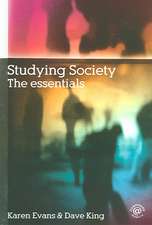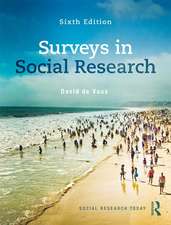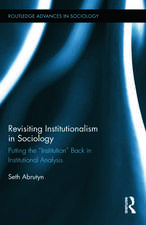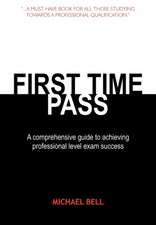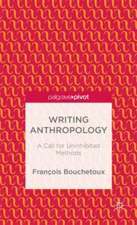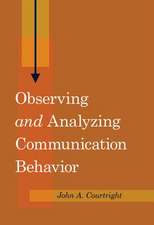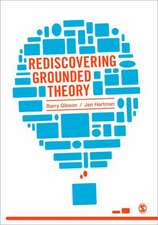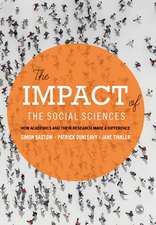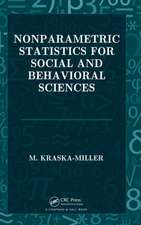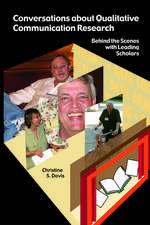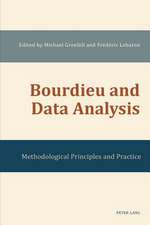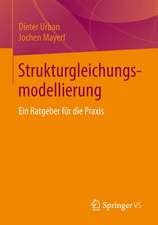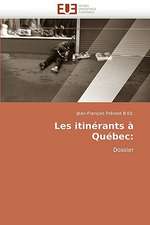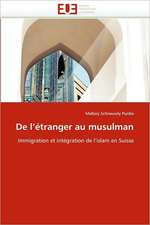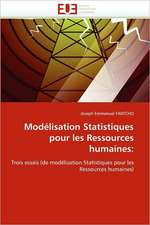An Invitation to Qualitative Fieldwork: A Multilogical Approach
Autor Jason Orne, Michael Bellen Limba Engleză Paperback – 3 mar 2015
| Toate formatele și edițiile | Preț | Express |
|---|---|---|
| Paperback (1) | 369.67 lei 43-57 zile | |
| Taylor & Francis – 3 mar 2015 | 369.67 lei 43-57 zile | |
| Hardback (1) | 980.00 lei 43-57 zile | |
| Taylor & Francis – 25 feb 2015 | 980.00 lei 43-57 zile |
Preț: 369.67 lei
Nou
Puncte Express: 555
Preț estimativ în valută:
70.75€ • 73.49$ • 58.77£
70.75€ • 73.49$ • 58.77£
Carte tipărită la comandă
Livrare economică 03-17 februarie 25
Preluare comenzi: 021 569.72.76
Specificații
ISBN-13: 9780415536622
ISBN-10: 0415536626
Pagini: 222
Ilustrații: 5 black & white tables
Dimensiuni: 156 x 234 x 15 mm
Greutate: 0.17 kg
Ediția:1
Editura: Taylor & Francis
Colecția Routledge
Locul publicării:Oxford, United Kingdom
ISBN-10: 0415536626
Pagini: 222
Ilustrații: 5 black & white tables
Dimensiuni: 156 x 234 x 15 mm
Greutate: 0.17 kg
Ediția:1
Editura: Taylor & Francis
Colecția Routledge
Locul publicării:Oxford, United Kingdom
Cuprins
1. The Multilogical Approach I. Ways of Relating 2. Participants and Communities – the They Voice 3. Researchers – the You Voice 4. The Audience – the We Voice II. Ways of Gathering 5. Listening: Interview Methods 6. Looking: Ethnographic Observation 7. Participating: Action Research, Collaboration, and Auto-Ethnography III. Ways of Telling 8. The Multilogics of Writing 9. The Promise of Field Work
Notă biografică
Jason Orne has a PhD in Sociology from The University of Wisconsin-Madison. His ethnography, Boystown, is under contract with University of Chicago Press. It traces the racial and sexual consequences of late-stage gentrification in a gay neighborhood. His academic work has been featured in the journals Sexualities and The Sociological Quarterly. His creative nonfiction work is in a variety of venues, from the magazine The Morning News to the anthology Off the Rocks.
Mike Bell is Vilas Distinguished Achievement Professor of Community and Environmental Sociology and Director of the Center for Integrated Agricultural Systems at the University of Wisconsin-Madison. Mike is also an ethnographer, agroecologist, and social theorist. He is an author or editor of 8 books, including two award-winning ethnographies. In 1994, he published Childerley: Nature and Morality in a Country Village (University of Chicago Press, 1994), which was co-winner of the 1995 Best Book Award of the Sociology of Culture Section of the American Sociological Association. Ten years later, he finished his second ethnography, Farming for Us All: Practical Agriculture and the Cultivation of Sustainability (Penn State University Press, 2004), which won an Outstanding Academic Title Award from the American Library Association. He is currently conducting participatory fieldwork among the amaQwathi people of the Eastern Cape Province of South Africa.
Mike has a musical second life as a composer and performer. His compositions include pieces for solo piano, symphony orchestra, and various chamber ensembles, as well as numerous "class-grass" works – a hybrid of bluegrass and classical traditions. He frequently performs on mandolin and banjo with the Madison-based class-grass ensemble Graminy (www.graminy.net).
Mike Bell is Vilas Distinguished Achievement Professor of Community and Environmental Sociology and Director of the Center for Integrated Agricultural Systems at the University of Wisconsin-Madison. Mike is also an ethnographer, agroecologist, and social theorist. He is an author or editor of 8 books, including two award-winning ethnographies. In 1994, he published Childerley: Nature and Morality in a Country Village (University of Chicago Press, 1994), which was co-winner of the 1995 Best Book Award of the Sociology of Culture Section of the American Sociological Association. Ten years later, he finished his second ethnography, Farming for Us All: Practical Agriculture and the Cultivation of Sustainability (Penn State University Press, 2004), which won an Outstanding Academic Title Award from the American Library Association. He is currently conducting participatory fieldwork among the amaQwathi people of the Eastern Cape Province of South Africa.
Mike has a musical second life as a composer and performer. His compositions include pieces for solo piano, symphony orchestra, and various chamber ensembles, as well as numerous "class-grass" works – a hybrid of bluegrass and classical traditions. He frequently performs on mandolin and banjo with the Madison-based class-grass ensemble Graminy (www.graminy.net).
Recenzii
This is a great book to use when teaching qualitative research methods. The approaches are clear and novel, mixing experience with scholarship, science, and humor. Students will love this book and faculty will enjoy teaching from it.
-Bryan L. Sykes, Criminology, Law & Society, University of California-Irvine
Written in an accessible style, this text introduces students to the nuts-and-bolts of designing projects and collecting original data and the broader issues that have shaped—and continue to shape— qualitative research. The authors challenge new researchers to consider how different groups (the populations being studied, researchers themselves, and the larger intended audiences) are invested in and might interpret their research. This text is a great new addition to the qualitative methods instructor’s bookshelf.
-Heather Jacobson, Sociology, The University of Texas at Arlington
An Invitation to Qualitative Fieldwork: A Multilogical Approach is a fresh and lively approach to teaching qualitative methods. It will appeal to both neophyte undergraduate and novice graduate students. Bell and Orne’s "They, You, We" framework offers students a way to understand the various positions which the ethnographer must occupy in order to grasp her own analytic perspective, the subject’s experience of reality, and the reader’s reception of the final ethnographic report. Their "cooking book" approach provides vivid, utilitarian exercises that will help students see themselves in the field. The reader is not taught how to cook the research but rather how "cooking" the experience of the field on one’s own terms is the best way to craft a unique story about the field experience. Bell and Orne tackle the tricky problem of how to engage students’ excitement and imagination in qualitative research without making them feel intellectually overwhelmed or afraid of going into the field. The chapters are helpfully short and presented with a clarifying narrative punch and focus which will appeal to readers grappling with what can feel like the impossible miasma of issues facing the qualitative researcher and writer.
-Christian J. Churchill, Sociology, St. Thomas Aquinas College
-Bryan L. Sykes, Criminology, Law & Society, University of California-Irvine
Written in an accessible style, this text introduces students to the nuts-and-bolts of designing projects and collecting original data and the broader issues that have shaped—and continue to shape— qualitative research. The authors challenge new researchers to consider how different groups (the populations being studied, researchers themselves, and the larger intended audiences) are invested in and might interpret their research. This text is a great new addition to the qualitative methods instructor’s bookshelf.
-Heather Jacobson, Sociology, The University of Texas at Arlington
An Invitation to Qualitative Fieldwork: A Multilogical Approach is a fresh and lively approach to teaching qualitative methods. It will appeal to both neophyte undergraduate and novice graduate students. Bell and Orne’s "They, You, We" framework offers students a way to understand the various positions which the ethnographer must occupy in order to grasp her own analytic perspective, the subject’s experience of reality, and the reader’s reception of the final ethnographic report. Their "cooking book" approach provides vivid, utilitarian exercises that will help students see themselves in the field. The reader is not taught how to cook the research but rather how "cooking" the experience of the field on one’s own terms is the best way to craft a unique story about the field experience. Bell and Orne tackle the tricky problem of how to engage students’ excitement and imagination in qualitative research without making them feel intellectually overwhelmed or afraid of going into the field. The chapters are helpfully short and presented with a clarifying narrative punch and focus which will appeal to readers grappling with what can feel like the impossible miasma of issues facing the qualitative researcher and writer.
-Christian J. Churchill, Sociology, St. Thomas Aquinas College
Descriere
In an attempt to cope with the profusion of tools and techniques for qualitative methods, texts for students have tended to respond in the following two ways: "how to" or "why to." In contrast, this book takes on both tasks to give students a more complete picture of the field. An Invitation to Qualitative Fieldwork is a helpful guide, a compendium of tips, and a workbook for skills. Whether for a class, as a reference book, or something to return to before, during, and after data-collection, An Invitation to Qualitative Fieldwork is a new kind of qualitative handbook.
